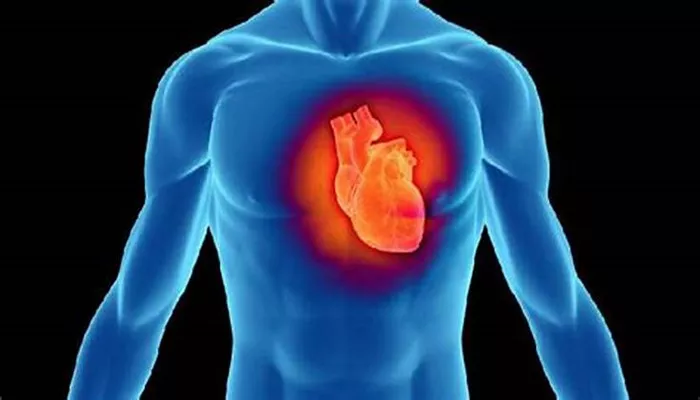Myocarditis is an inflammatory condition of the heart muscle (myocardium) that can lead to a variety of complications, ranging from mild symptoms to severe heart failure. Understanding how long it takes for myocarditis to develop is crucial for early diagnosis and treatment, which can significantly impact patient outcomes. This article delves into the development timeline of myocarditis, its causes, symptoms, diagnostic methods, and treatment options.
What Is Myocarditis?
Myocarditis is an inflammation of the myocardium, the middle layer of the heart wall. This condition can weaken the heart muscle, affecting its ability to pump blood efficiently and causing irregular heart rhythms.
The inflammation can be caused by various factors, including viral, bacterial, fungal, and parasitic infections, as well as autoimmune diseases, medications, and environmental toxins.
SEE ALSO: What to Watch Out for with Myocarditis
Causes of Myocarditis
The most common cause of myocarditis is viral infection. Viruses such as the coxsackievirus, adenovirus, influenza, and more recently, SARS-CoV-2 (the virus responsible for COVID-19), have been implicated in causing myocarditis. Other infectious agents, including bacteria like Staphylococcus and Streptococcus, fungi such as Candida, and parasites like Trypanosoma cruzi (which causes Chagas disease), can also lead to myocarditis.
Autoimmune diseases, such as systemic lupus erythematosus and rheumatoid arthritis, can result in myocarditis when the body’s immune system mistakenly attacks the heart muscle. Additionally, certain medications (like chemotherapeutic agents), illicit drugs, and heavy metals can induce myocarditis.
How Does Myocarditis Develop?
Acute Phase
Myocarditis can develop suddenly, and its onset can be rapid, typically within a few days to weeks after exposure to the causative agent.
During the acute phase, the body responds to the infection or insult by triggering an inflammatory response. This response involves the activation of immune cells that infiltrate the heart muscle, leading to the destruction of infected cells and the release of inflammatory cytokines.
In cases of viral myocarditis, the virus initially infects the heart muscle cells, replicates within them, and causes direct damage. The body’s immune response to this infection further contributes to the inflammation and damage.
Subacute Phase
Following the acute phase, the subacute phase of myocarditis can last for several weeks to a few months. During this period, the inflammation persists, and the immune system continues to respond to the initial insult. The extent of inflammation and damage during this phase can vary, depending on the virulence of the pathogen and the individual’s immune response.
Symptoms such as chest pain, fatigue, shortness of breath, and palpitations may become more pronounced during this phase.
Chronic Phase
In some cases, myocarditis can progress to a chronic phase, lasting several months to years. Chronic myocarditis can result in ongoing inflammation and fibrosis (scarring) of the heart muscle, leading to long-term complications such as dilated cardiomyopathy, where the heart becomes enlarged and weakened, impairing its function. Chronic myocarditis may be asymptomatic or present with symptoms of heart failure, such as swelling in the legs, rapid weight gain, and persistent fatigue.
Symptoms of Myocarditis
The symptoms of myocarditis can vary widely, depending on the severity of the inflammation and the underlying cause.
Common symptoms include:
Chest pain or discomfort
Fatigue
Shortness of breath, especially during physical activity or when lying down
Irregular heartbeats (arrhythmias)
Rapid or abnormal heart rhythms (tachycardia)
Swelling in the legs, ankles, and feet (edema)
Light-headedness or fainting (syncope)
In severe cases, myocarditis can lead to heart failure, where the heart is unable to pump enough blood to meet the body’s needs. This can cause symptoms such as severe shortness of breath, fluid retention, and persistent coughing.
Diagnosis of Myocarditis
Diagnosing myocarditis can be challenging, as its symptoms often mimic those of other cardiovascular conditions. A comprehensive diagnostic approach typically involves a combination of clinical evaluation, imaging studies, and laboratory tests.
Clinical Evaluation
A thorough medical history and physical examination are essential in evaluating a patient with suspected myocarditis. The physician will inquire about recent infections, exposure to potential toxins, and any underlying autoimmune diseases.
Electrocardiogram (ECG)
An ECG is a non-invasive test that records the electrical activity of the heart. It can reveal abnormalities such as irregular heart rhythms, which may indicate myocarditis. However, ECG findings are not specific to myocarditis and must be interpreted in conjunction with other diagnostic tests.
Echocardiogram
An echocardiogram uses ultrasound waves to create images of the heart. It can provide information about the heart’s size, structure, and function, helping to identify any abnormalities suggestive of myocarditis, such as reduced ejection fraction (a measure of the heart’s pumping ability).
Cardiac MRI
Cardiac magnetic resonance imaging (MRI) is a valuable tool in diagnosing myocarditis. It can detect inflammation, scarring, and changes in the heart muscle, providing detailed images that help confirm the diagnosis.
Endomyocardial Biopsy
In some cases, an endomyocardial biopsy may be necessary to obtain a definitive diagnosis. During this procedure, a small sample of heart tissue is taken and examined under a microscope to identify the presence of inflammatory cells and other pathological changes indicative of myocarditis.
Blood Tests
Blood tests can help identify markers of inflammation and cardiac injury, such as elevated levels of troponin (a protein released when the heart muscle is damaged) and inflammatory cytokines. Additionally, blood tests can detect the presence of viral or bacterial infections.
Early diagnosis and treatment are crucial in improving outcomes and preventing complications. Regular follow-up with a cardiologist is essential for monitoring heart function and managing any ongoing symptoms.
Conclusion
Myocarditis is a complex and potentially serious condition that can develop rapidly or progress over several months.
Understanding the development timeline of myocarditis is essential for early diagnosis and effective management. With prompt and appropriate treatment, many patients can recover fully and lead healthy lives. Ongoing research and advancements in diagnostic and therapeutic approaches continue to improve our understanding and management of this challenging condition.

